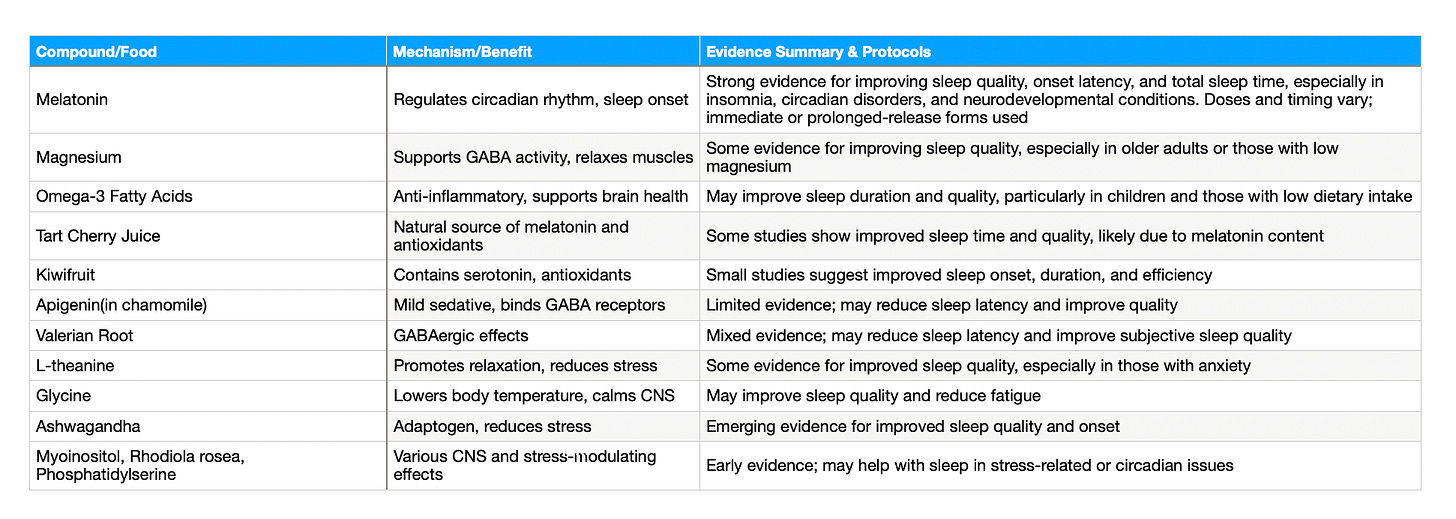Evidence-Based Dietary Protocols For Better Sleep
A new review reveals which foods and supplements actually support deeper, more restorative sleep—backed by science.
Struggling to get a good night’s sleep, even when you do “everything right”? You’re not alone—many of us deal with restless nights, and the search for safe, effective sleep aids is more relevant than ever. This review explores whether certain foods, nutrients, and supplements can actually help you get better, deeper sleep.
Key Points
Aims
The study aims to summarise and critically evaluate the evidence for dietary and supplemental protocols, focusing on specific foods, nutrients, and nutraceuticals that may promote and improve restful sleep, particularly in individuals experiencing sleep disturbances or circadian rhythm issues.
Methods
Literature Search: Systematic searches were conducted in MEDLINE (PubMed) and Cochrane databases using the PICO method. Search terms included specific nutrients (e.g., “melatonin,” “magnesium,” “kiwifruit”) and general terms like “nutraceuticals,” “supplements,” “sleep,” and “insomnia.”
Study Selection: Included systematic reviews, meta-analyses, clinical, and observational studies investigating dietary interventions on sleep outcomes, using both subjective (questionnaires, diaries) and objective (polysomnography, EEG, actigraphy) measures.
Outcomes of Interest: Sleep quantity, quality, efficiency, onset latency, wake after sleep onset, daytime sleepiness, and relevant blood biomarkers.
Results
Why Sleep Matters
Chronic sleep deprivation is common and linked to increased risk of mortality, cardiovascular disease, obesity, diabetes, cancer, and neurological disorders.
Sleep is critical for memory, recovery, immune function, and emotional health.
Sleep Hygiene First
Good sleep hygiene (morning/evening sunlight, limiting screens before bed, cooling the sleep environment, and relaxing pre-bed routines) is foundational.
Dietary interventions may be helpful when these options are not enough or not feasible (e.g., shift work, jet lag).
Nutrients and Compounds Reviewed
The review covers these key nutraceuticals and foods:
Table 1. Summary of dietary sources, recommended supplementation protocols, optimal timings, and preferred forms of consumption for selected nutraceuticals with sleep-promoting properties.

Populations Most Likely to Benefit
Older adults (due to reduced melatonin production)
People with insomnia, anxiety, depression, or neurodegenerative diseases
Those experiencing circadian misalignment (shift workers, jet lag)











